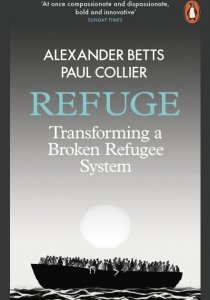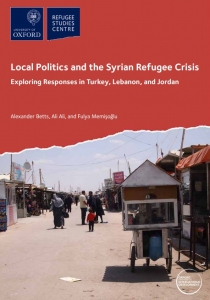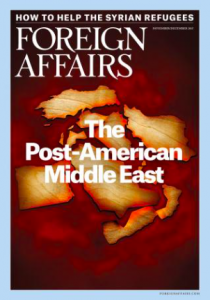alt=""
Credit: L. Bloom
Jordan Compact
Creating jobs for Syrian refugees.
During the London Pledging Summit in February 2016, the UK Government played a leading role in concluding the Jordan Compact, a deal which committed to supporting Syrian refugees’ access to employment. The agreement was pioneering in providing trade concessions and finance to Jordan in exchange for providing work permits to Syrian refugees. Overall, results have been mixed, but the Compact has led to around 180,000 Syrians receiving work permits in a country that previously denied refugees the right to work.
The Jordan Compact was an agreement between the Government of Jordan and the international community with the aim of creating the right and opportunity for Syrian refugees to access the Jordanian labour market. The Compact was designed partly with the input of Alexander Betts and his Oxford colleague, Paul Collier. It was innovative in a number of respects. In a country with significant barriers to refugees’ right to work, the agreement recognised and built upon the Government of Jordan’s aspiration to build its manufacturing sector, and offered EU trade concessions and World Bank finance in exchange for allowing refugees to work legally within Jordan’s pre-existing Special Economic Zones (SEZs), as well as in some jobs outside of the SEZs.
Five years later, the results are mixed. On a political level, it has successfully contributed to the creation of the right and opportunity to work for tens of thousands of Syrian refugees in Jordan. However, it has also suffered from limitations, both economically and socially. Economically, relatively few private sector companies have been willing to invest in manufacturing in Jordan, given the country’s limited comparative advantage in manufacturing. Many of the manufacturing companies to relocate to the SEZs have instead been Syrian companies, formally located in Syria. Socially, relatively few Syrians have been willing to work in the SEZs. The main job opportunities ultimately created were in the garment sector and targeted Syrian woman; however, few Syrian women were interested in travelling to the SEZs to work for a range of reasons. Nevertheless, the Compact represents an important opportunity to learn, and opened up a series of subsequent opportunities for refugees to access Jordanian labour markets. The ideas within the Jordan Compact have also been influential in shaping other countries, such as Ethiopia’s, willingness to pass legislation enabling refugees to have partial access to the right to work.
Although we have not undertaken a formal impact evaluation of the Jordan Compact, we have maintained an interest in, and written about the outcomes.




